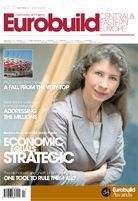And why should we actually set up a profile on Facebook? I often hear the question posed in this way. It is asked by both representatives of real estate agencies and developers. The commercial development market is increasingly appreciating the power of social media. But is it able to exploit it? The question remains open. On the one hand, shopping centres, for instance, are very comfortably positioned with regard to the new media reality; but on the other hand, B2B (business-to-business) communication still flounders.The power of communityNowadays you do not have to convince anybody that social networking sites constitute a highly important element of communication. Thanks to them you can reach the average John Smith or a business client with a non-standard message. The question is whether it is worth it? A look at the numbers could provide the answer. According to a survey carried out by CBOS, 56 pct of respondents in Poland use the internet regularly (i.e. at least once a week). Wha




























































